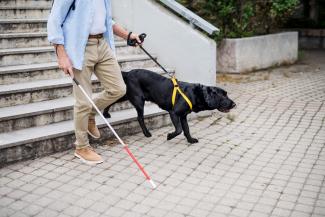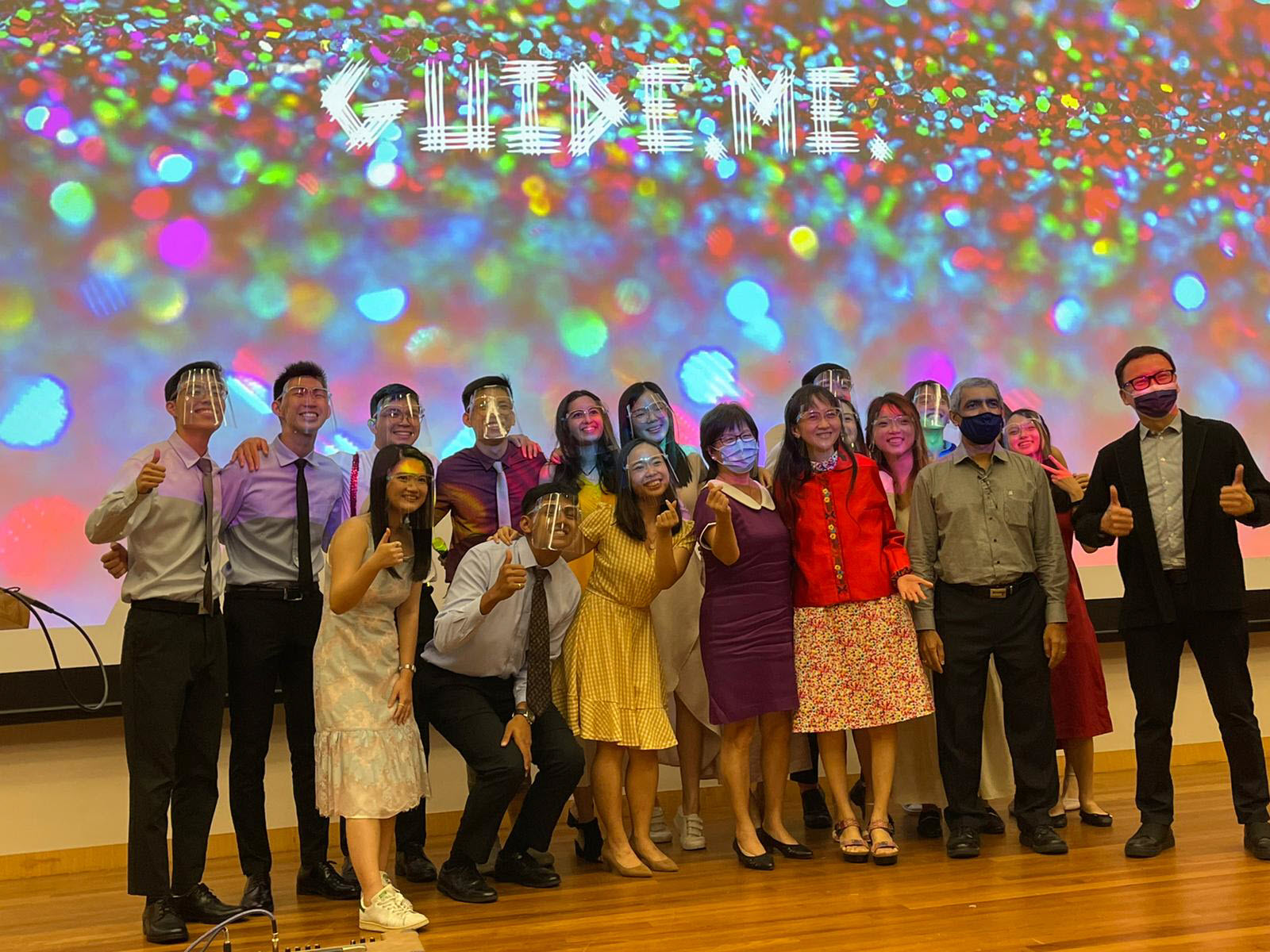
Singapore, 11 May 2021 – Singapore’s public transport system may be lauded for its efficiency, taking top spot in world rankings, but this efficiency does not apply to a group of users who most need it - the visually impaired and legally blind[1]. A study conducted by the Singapore Management University (SMU) also revealed that almost half of the legally blind survey respondents (49%) do not feel they can be open about their visual impairment.
The nationwide study, titled “Guide.Me.” was conducted by SMU Senior Lecturer of Statistics Rosie Ching and her 95 SMU undergraduates. As part of the project, SMU students interviewed 3,733 Singaporeans across all postal codes in Singapore, about their experiences and perceptions of the blind community. Within the backdrop of the ongoing COVID-19 pandemic, Ms. Ching and her students conducted the surveys through face-to-face interviews, phone and Zoom calls.
With the support of Guide Dogs Singapore, the study aimed to examine the perceptions and views of the visually-impaired, their mobility challenges in Singapore, and how far along Singapore is as an inclusive society. In an era where much of learning has gone digital, the nationwide study was part of their introductory Statistics project, infused with elements of the hands-on and experiential SMU-X pedagogy.
SMU found that almost 8 in ten of the legally blind and more than 9 in ten sighted Singaporeans strongly believe that the Singapore’s public transport system should be more inclusive for them to travel and get around more efficiently. Half of the legally blind also think that the current rate of improvement of transport amenities for them is not good enough for them, with the majority of almost 65% needing a guide or public assistance when travelling and 6 in ten stressing the challenges they face in asking for help in their mobility needs.

When asked to choose the best mobility aid, visually-impaired survey respondents chose “Human guide” as their top choice, followed by “Handphone with GPS or transport app” as a close second choice. The survey results are available at http://www.screeningstatistics.com/guideme
Commented Ms. Tan Hwei Lan, Volunteer Director at Guide Dogs Singapore, “These survey results will strengthen our push to encourage more clients, especially our seniors, to learn to use the smartphone and Apps comfortably, because human guides, though much more preferred, may be difficult to find and the person approached (if it is a stranger) may not know how to guide the person with vision impairment properly, a very common phenomenon.”
The Guide.Me. Project had the warm support of its Patron, Ms. Denise Phua, MP and Mayor of Central District CDC, who met Ms. Ching, her students and Guide Dogs Singapore. “The character of a society is reflected in how we treat and include those who are differently abled. Everyone, regardless of ability, deserves equal access to essentials such as education, mobility, healthcare, work and friendships. I am heartened that SMU students care enough to study how the quality of life for the visually impaired and legally blind can be enhanced.”
Said Ms. Ching, “A national survey is already challenging in regular times, and how many times more so during this pandemic, with so much of the life we knew irretrievably disrupted. It’s been a privilege for my students and me, to have worked together for the mission of Guide Dogs Singapore, to aid the visually-impaired in helping society understand them more. I have friends who are legally blind, and it is my fervent hope that the fruit of this effort will stimulate everyone to think about our attitudes and perceptions towards them and the everyday challenges they face, to make life easier for them in an already-fraught world.”
Alex Tan Zhong Hao, SMU undergraduate, 24 said, “Guide.Me. has been truly enriching in not only learning statistics, but finding genuine purpose under Ms. Ching’s guidance, to help the visually-impaired and general public to better understand their struggles and needs, to make our community a better place to live for all.”
Survey findings
- Close to 8 in 10 (79%) of the legally blind respondents think that Singapore’s transport system needs to be more inclusive for them to travel and get around more efficiently. 92% of the general public agree.
- When asked what is the best form of mobility aid (white cane, handphone apps, service dog, or human), “Human guide” was uncovered as a top choice. Most prefer a human guide to a dog or a handphone. The white cane trails dismally in second-to-last place across profiles, superior only to “Others”.
- Close to half of the legally blind survey respondents (49%) do not feel they can be open about their visual impairment. The legally blind respondents perceive that others find them less competent than usual because of their condition, and that others feel awkward when they are around them.
- The pandemic has shone a spotlight on the loneliness felt by all individuals. Here, the study found that 66% of the legally blind feel lonely more often than usual, due to their blindness.
- 45% of the legally blind say they experience a sense of rejection, five times higher than the 9% of the general public who say they reject the blind.
- There is empathy for the blind on the part of the general public, with almost 74% of respondents agreeing that persons with such visual impairment may easily feel embarrassed.
[1] The legally blind in Singapore are people with vision worse than 20/200. Source: https://www.healthhub.sg/a-z/diseases-and-conditions/58/topics_blindness